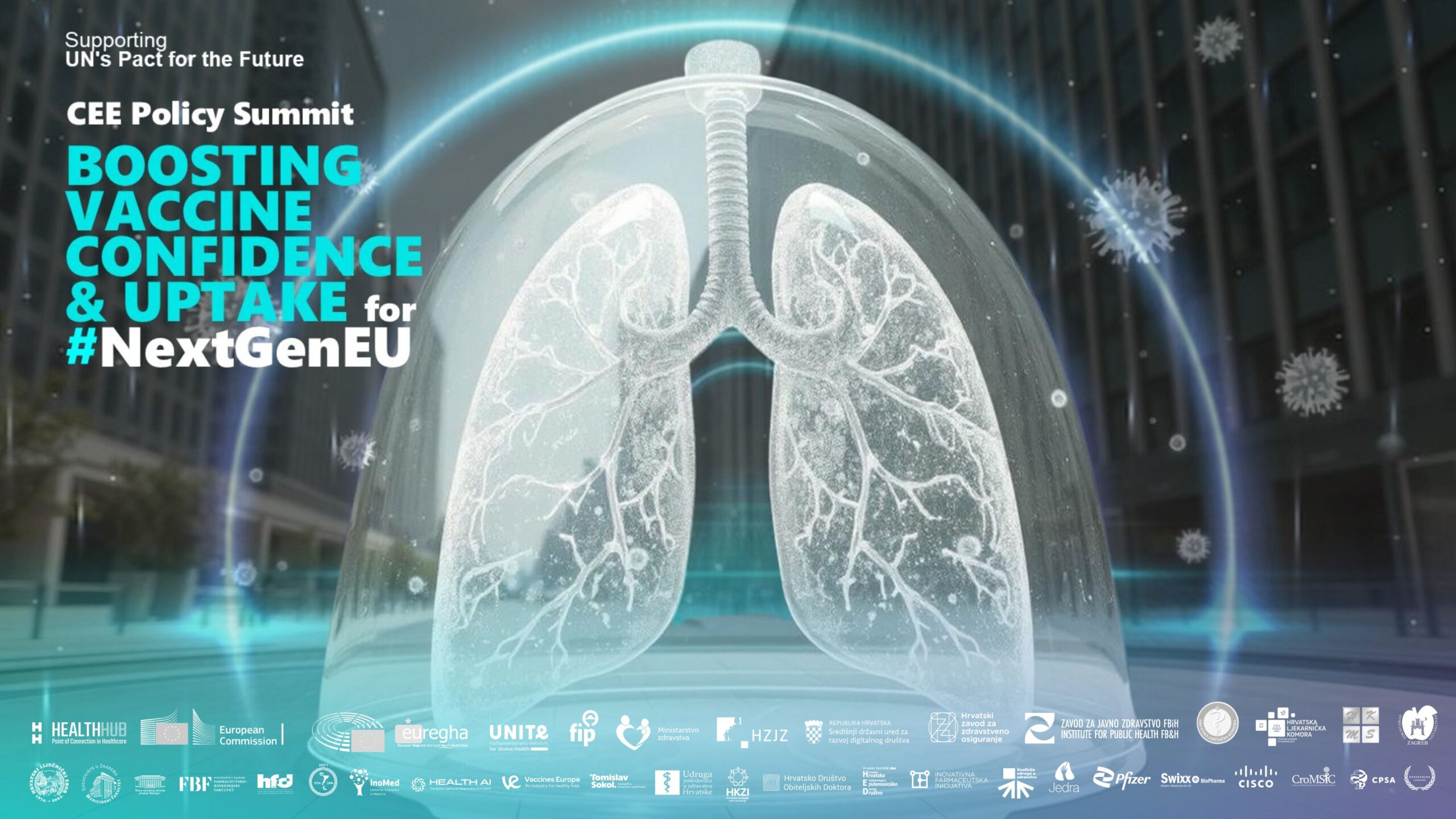Vaccines Europe – Joint Statement of the Steering Group on Influenza Vaccination on the Council Conclusions on the improvement of cardiovascular health in the EU
e welcome the recognition of vaccination as an important prevention tool outlined in the Council Conclusions on the improvement of cardiovascular health (CVH) in the European Union (EU), adopted under the Hungarian Presidency of the Council of the EU on 3 December 2024. In particular, we strongly support the acknowledgement of the value of vaccination against infectious diseases including flu, pneumococcal, SARS-CoV-2 and RSV as important for patients with an increased or existing risk of cardiovascular disease (CVD).
We commend the European Commission and the Council for these efforts, while recognising the need for additional measures to address existing gaps and further enhance the effectiveness of these initiatives.
Respiratory infections can increase the risk of CVDs among all people. Studies show that for CVD patients diagnosed with flu, the risk of experiencing a heart attack increases 6-fold.[1] Additionally, patients have a 3 times increased risk of experiencing a stroke after a systemic respiratory infection.[2] Therefore, vaccination against respiratory infections can reduce the risk of complications associated with CVD.
With a strong foundation laid by the Council Conclusions on improving CVH in the EU, and as we begin this new mandate with public health prevention on the agenda, the Steering Group on Influenza Vaccination therefore makes the following recommendations which we believe will be essential to fully achieve the stated ambitions.

A harmonised, EU-wide data-driven approach to vaccination against respiratory infections among people with chronic conditions
A harmonised, EU-wide approach to vaccination against respiratory infections is essential for improving CVH and preventing CVD. Current data reveals significant disparities in vaccination coverage across respiratory infections, and overall suboptimal coverage rates in the adult population. Further, the lack of timely, consistent and comprehensive surveillance data as well as reporting on vaccination rates among people living with chronic conditions like CVD across EU Member States hampers efforts to identify and address gaps in coverage effectively.
Currently, data collection across Member States is poor and fragmented, with inconsistent reporting timelines and methodologies. For example, while the ECDC published a report on COVID-19 vaccination uptake in 2023/24, only a small subset of countries provided data on key populations, such as individuals with chronic conditions like CVD and healthcare professionals. Similarly, only late this year was flu vaccination uptake data reported for the previous season in a timely way, with the previous publication featuring data from the 2021/2022 season.
Inconsistent, delayed or absence of reporting on surveillance data and vaccination rates hampers real-time understanding and effective responses to barriers, both at EU and national level. To address this, we call for a common methodology, standardised, and enhanced data collection across Member States through robust, digitalised infrastructures, including people-centered electronic vaccination registries and surveillance systems, as well as regular reporting to the ECDC. These registries would enable real-time tracking, transparent data sharing, and targeted interventions including tailored communication campaigns for at-risk populations while empowering healthcare professionals with up-to-date records to support informed recommendations and continuity of care.

Supporting the education of healthcare professionals through harmonised guidelines and training
Strengthening the education of healthcare professionals is paramount to improving vaccination rates among patients with CVDs. All healthcare professionals should be well-versed in vaccination recommendations for CVD patients, and harmonised EU-wide guidelines should be developed to emphasise the role of vaccination in CVD prevention. Integrating dedicated lectures on vaccination into initial training and continuing education for all healthcare professionals would ensure a stronger foundation of knowledge.
Additionally, healthcare professionals across disciplines must view vaccination as a shared responsibility. To ensure robust preventative care, healthcare professionals should be aware of the vaccination status of their patients. Collaborative care programs could further enhance these efforts by ensuring consistent screening and management of vaccination. All health professionals as trusted care providers are uniquely positioned to address vaccination and immunisation with their patients. By embedding vaccination education and proactive outreach into healthcare training and practice, we can improve vaccination uptake and ultimately better protect CVD patients from preventable respiratory infections and potential resulting complications.

Increased development of innovative health literacy tools to communicate on the importance and value of immunisation among both healthcare professionals and citizens, including at risk patients
As highlighted in the Council Recommendation on vaccine-preventable cancers, adopted in June 2024, it is fundamental to improve health literacy to address and support vaccine confidence. This includes advocating for immunisation as a prevention tool and implementing, when available, the model for evidence-based awareness-raising campaign that the European Commission will develop. To do so, a robust framework for collaboration between governments, civil society organisations and other stakeholders needs to be in place, considering a life course approach to immunisation.
We support the emphasis on taking measures to improve health literacy in the Hungarian Presidency Council Conclusions on the improvement of CVH in the EU. To further this effort, we advocate for the integration of innovative digital tools, such as appointment scheduling, personalised reminders, and tailored decision aids and educational content. Further, personalised discussions with trusted specialists who can provide clear, consistent recommendations aligned with other healthcare professionals, are key to alleviating apprehensions about vaccination.
Additionally, governments should complement these efforts with sustained public awareness campaigns that proactively communicate the benefits of immunisation, moving beyond simply countering misinformation to create a culture of empowerment and trust. Increasing the development and use of health literacy tools is vital to better protect the population against respiratory infections.
REFERENCES //
https://www.vaccineseurope.eu/media-hub/press-releases/joint-statement-of-the-steering-group-on-influenza-vaccination-on-the-council-conclusions-on-the-improvement-of-cardiovascular-health-in-the-european-union/






